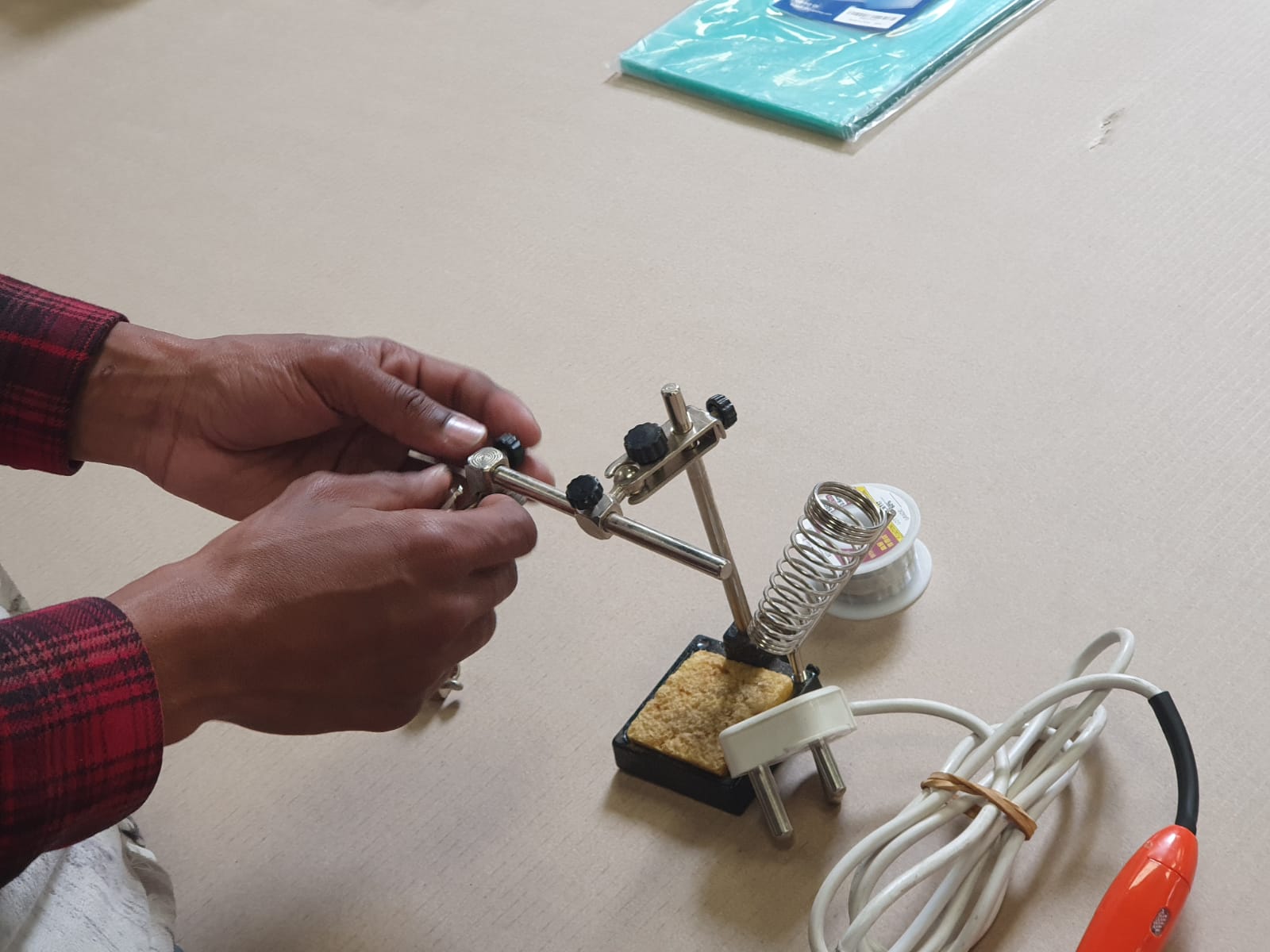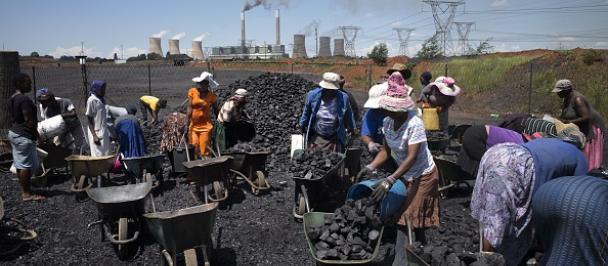Makerthon Challenge Poster
The United Nations Development Programme (UNDP) in South Africa recently received equipment and materials to build and test winning innovations resulting from the Global COVID-19 Detect and Protect Challenge. The Global COVID-19 Detect and Protect Innovation Challenge was launched in mid-April by UNDP Global and Hackster.io, together with other partners such as Microsoft, Amazon, Google and others. UNDP South Africa partnered with the WITS Tshimologong Digital Innovation Precinct and the South African Hackster Community to host a Makerthon to challenge local innovators to make some of the winning innovations.
The global innovation challenge provided innovators, makers, and developers an opportunity to identify open-source, low-tech, and inexpensive hardware solutions to respond to COVID-19. Many of the developed innovations cost less than R500 to build, and some as low as R20. Most can be built from easily sourced components, with instructions available and they include touchless sanitiser dispensers, oxygen-level detectors and contactless thermometers. The South African Makerthon gave local builders the flexibility to adapt the developed innovations to make them more relevant and applicable to the South African needs and context.
The opening ceremony of the week-long Makerthon kick-started on Saturday, 12 September 2020, with welcoming remarks by Mr Gabriel Dava- Deputy Resident Representative of UNDP in South Africa, who emphasized the importance of women and youth being actively involved in technology and innovation. In her opening remarks, Ms Lesley Williams, CEO of Wits Tshimologong indicated that the Makerthon can contribute to the growth and development of our economy. Ms Melanie Hempel, Hackster Technical Lead, presented the innovators with the innovations they would build during the Makerthon, and shared tips and ideas for the builds.
The Makerthon participants were grouped into four teams, the yellow, red, blue and orange team, each of which created a particular solution.
The yellow team created the Open- Source Pulse Oximeter- a device that reads accurate information about a person’s current health condition. This device was created in a form of a finger reader and watch, that makes it possible for a person to know their oxygen saturation levels and heart rate.
The red team assembled the Autonomous Infrared Contactless Thermometer Sensor- this device checks the body temperature of people entering a building, eliminating the need of having staff to monitor physically. The groups identified that using the manual thermometer poses a possible risk of contracting the coronavirus since it requires physical contact with people. Unlike the manual thermometer, the autonomous infrared contactless thermometer is safer and convenient to use since the device and not a person reads the temperature in seconds.
The Orange team fabricated the Automatic Hand Alcohol-Based Sanitiser Dispenser- this is a device with an audio file informing the user about the importance of cleaning their hands and an OLED screen thanking the user once they use the device. The dispenser can detect the presence of a human hand and then dispenses an appropriate amount of sanitiser. The orange team identified their target market as the higher learning institutions, retail stores and cooperate businesses.
The Blue team created the Authorised Entry Using Face Mask Detection System – this system uses facial recognition technology to detect whether a person is wearing a face mask in public spaces. The device serves as both a mask detector and a mask dispenser. If a person is not wearing a masks it will deny access.
As the week progressed, under the mentorship of UNDP, Tshimologong and Hackster, the innovators worked diligently to develop innovations that could support response and recovery efforts during Covid-19.
The closing ceremony of the Makerthon took place at the WITS Tshimologong Digital Innovation Precinct, on Sunday, 20 September 2020. In an inspiring opening speech, the CEO of Wits Tshimologong, Ms Lesley Williams, said the quality of the intervention relies on the internal quality of the intervener. All four teams were given an opportunity to demonstrate and present their innovations, following which they were awarded with gifts sponsored by UNDP, Hackster and Tshimologong.
The project now moves into the testing phase, where all four device functionalities will be tested for effectiveness. The devices will be tested in real contexts, such as in schools, office buildings, and other public areas. After external, successful validation, innovations can be offered to relevant stakeholders and networks for further development and opportunities Additionally, should testing be successful in the five African countries selected to host the Makerthon, UNDP Global will host a session with potential investors to scale the innovations further.

 Locations
Locations




